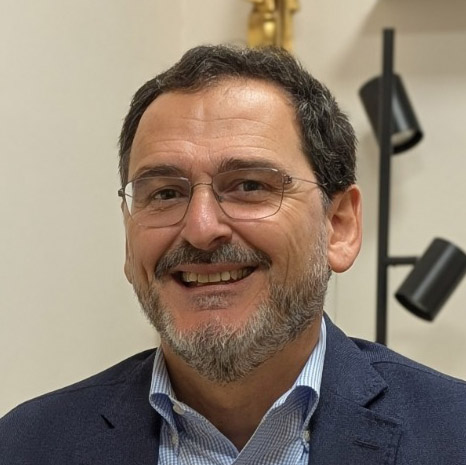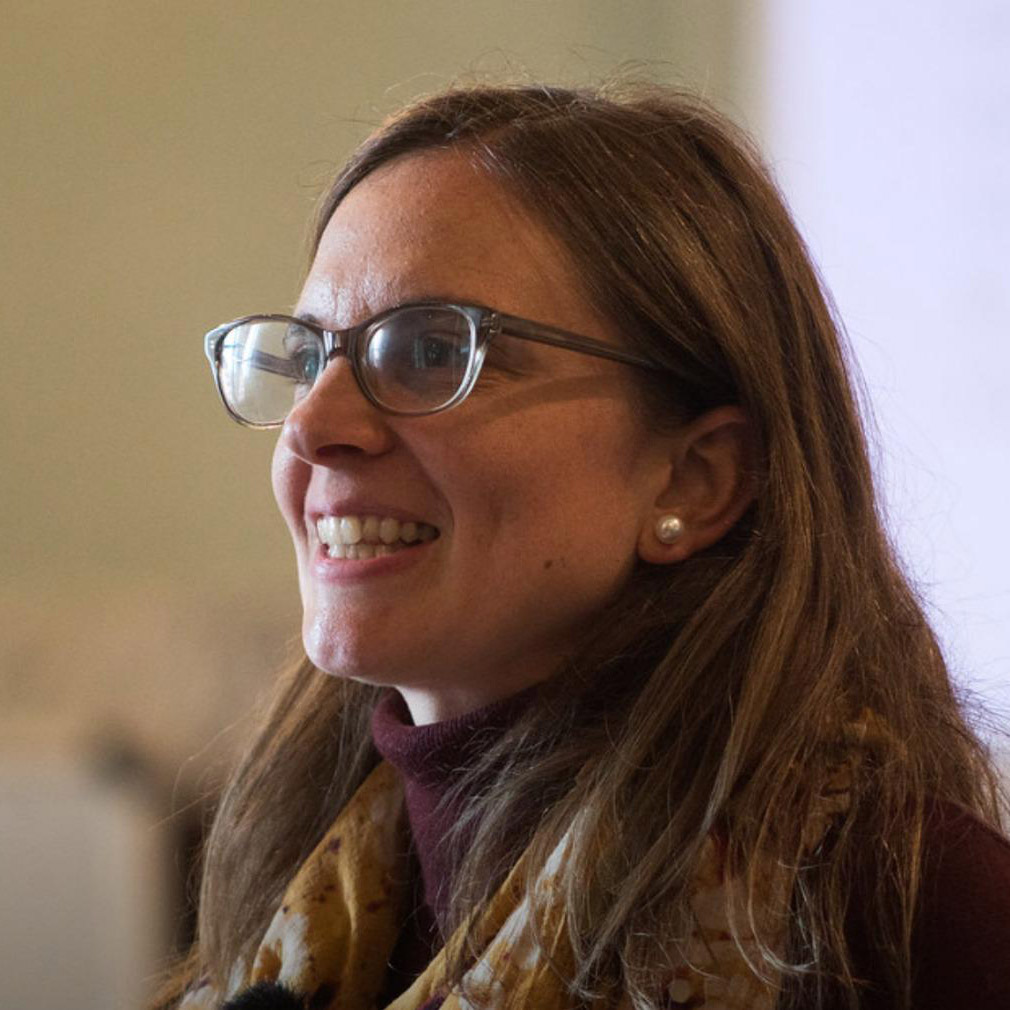Twenty-five years ago, the Pontifical University of the Holy Cross in Rome launched the Professional Seminar for Church Communications Offices. Since then, these meetings have become one of the most important congresses in the world in the field of Church communications, and this year's edition, which also coincides with the Jubilee of Communicators, will feature speakers of the stature of R. J. SnellJoost Joustra or Fabio Rosini.
Marco Carroggio and Gema Bellido are two of the members of its organizing committee and wanted to share with Omnes the preview of a congress that this year focuses on the contexts, attitudes and experiences related to evangelizing communication.
After 13 editions of the Professional Seminar for Church Communications Offices, what is your assessment of these meetings?
-Marco Carroggio [M.C.]: Many participants tell us that it has consolidated itself as a meeting point for Church communicators. In the first edition we were 40 participants, in this one we will be more than 600, from all over the world and from the most diverse ecclesial charisms. The synergy between professionals of such a specific sector (those responsible for communication in dioceses, episcopal conferences, religious institutes, movements, ecclesial associations, etc.) generates positive dynamics: challenges, experiences, solutions and practical proposals that are not easy to exchange in other contexts are shared.
I would say that the best thing about these 25 years of seminars has been the participants and all the projects and ideas that have emerged from their interactions. For our part, from the University of Santa Croce We have tried to offer a varied program that brings together moments of inspiration and practical encounters, bridging the gap between the academic and professional worlds, emphasizing affirmative projects for the communication of the faith, but without avoiding the challenges and difficulties of the Church at any given moment.
What are the aspects of Church communication that have changed the most since these seminars began 25 years ago?
-M.C.]: A fundamental change has been to move from a "broadcast" communicative paradigm (from one to many) to the digital paradigm, more participatory and open: we all dialogue with everyone. Twenty-five years ago, the Church's institutional communication was primarily centered on the media; today - without undermining the importance of the media - we reach people better, in a more disintermediated, informal and direct way.

Along with its challenges, this technological change opens wide horizons for the communication of faith. By way of example, three cases that we will see in this seminar are Hallow, a spirituality app with which several million users pray every day; the case of the Alpha Course, an initiative of first announcement of the faith that has reached 40 million people, and the case of the videocast of the Dominican youtuber Frère Paul-Adrien with half a million followers in France.
The digital platform of the Pope's Worldwide Prayer Network brings the Holy Father's intentions to every corner of the planet; a spiritual resource website such as opusdei.org is tapped by 12 million users and a series like The Chosen has spread across the digital continent among believers and non-believers alike.
These are phenomena that do not always make the news, but are significant in the daily lives of millions of people. Similar initiatives can be found today at parish, diocesan, national and international levels. They were unthinkable in the communicative paradigm of the past and offer great opportunities for Christianity, which is by nature a phenomenon of friendship, relationship, welcome, dialogue, of people and not of the elite.
Within this framework, another fundamental change has to do with the approach of the Church's communications offices: we now devote more energy than before to fostering the communicative sensitivity of the faithful, because the Church is a common house, of which we are all "spokespersons."
Has communication in the Church evolved at the same pace as its civil and cultural counterparts?
-Gema Bellido [G.B.]: I would say yes, although of course it depends on the professionals and the specific institutions. As you will see in this seminar, there are institutional or personal communication initiatives that are at the same level or a higher level than many others in the civil sphere. There is still a long way to go, but I believe that in many environments processes are being unleashed to achieve a greater professionalization that will benefit the faithful and all those interested in the Church's message.
In recent years, your seminars have dealt with a wide range of topics. How do you read the "signs of the times" in Church communication? Is it still more reactive than proactive in most areas?

-[G.B.]: In the previous edition of the professional seminar, in one of the sessions, you talked about contextual intelligence, that ability to gather information from the environment, be able to interpret it and thus be able to adapt the communication to the audience in front of you. This exercise could be a good way to read the signs of the times.
For example, one of the speakers will talk about the search for spirituality that exists in today's world, which often drifts towards orientalism and the practices of mindfulnessThese are lights that invite us to ensure that the communication of the Church, and the Church as such, knows how to offer moments and spaces of sincere spirituality.
Although in some contexts communication tends to be reactive, especially when it comes to crisis communication, in many other contexts steps have been taken to take proactive risks and to put themselves on a par with the standards of transparency, professionalism, creativity, etc., that are applied in other areas. The examples given by Carroggio in the previous question could be multiplied.
Focusing on this issue, why the choice of such a "broad" theme as communication and evangelization?
-M.C.]: It is broad, but it is central: if our communication does not directly or indirectly reinforce the mission of the Church, what value would it have? The 2025 Jubilee gave us the opportunity to return to the core of this activity, which is both a professional job and a spiritual mission.
Within the framework of the Jubilee, with the directives of the Pope and the Dicastery for Communication, we propose these days as a time of renewal. We want to ask ourselves: How can we, from the Church's communications offices, contribute to making the reality of God and his love for all people present in public opinion? How can we ensure that the Church's communications contribute to bringing the light of the Gospel to all environments, especially to those most in need? How can we collaborate in "transmitting hope" in a polarized and often polemical and pessimistic context?
A broad reflection, at least from time to time, reconnects us with the main thing: not to be bureaucrats of a cold or aseptic communication but communicators of the joy and hope of the Gospel. Sometimes I think that our mission has a lot to do with the response of the apostle Philip to his friend Nathanael: "Come and see". Without any kind of imposition, we want the world to see and know what fills us with meaning.
What would you highlight from this year's presentations?
-[M.C.]: This year's edition has something of a mosaic. By focusing on the communication of faith, we have identified some ways that are more necessary or that connect better with the contemporary mentality: the way of witness, the way of charity and service, the way of reason and science, the way of culture and art, the way of healing and forgiveness, the digital way, the way of spirituality and joy, among others.
In the choice of these paths lie some intuitions about the communication of the Gospel: that sometimes action is more important than words; that Christian witness is often more eloquent than disembodied doctrines; that there is no true communication without attention to the circumstances of the person; that there is a sincere search in the world for beauty, spirituality, thought and culture... that the Church can help to satisfy.
In addition to the two framework presentations (such as the one by Bishop Fisichella or Professor Anne Gregory, a great theologian and a great scholar of communication, respectively), many other people make up this mosaic with explicit references to each of these paths. In the closing session we will have with us the Anglican pastor Nicky Gumbelpioneer of the Alpha Courseand a remarkable example of how Christians can work together in the first proclamation of the Gospel, in a way that is welcoming and open to all.
What has been the response to this seminar, which also culminates in your participation in the Jubilee of Communication?
-G.B.]: It certainly exceeded our expectations and will make us reflect on the future of the seminary. For some years now, some Church institutions have been taking advantage of this event to hold working days with their communications teams.
Finishing the Seminar with the Pope and with so many other communicators from all over the world is a great joy and a fundamental incentive.
We live in a world of stories (and especially short stories, "reels"), is there not a danger of superficial communication that does not amount to real evangelization but to a spiritual veneer?
-G.B.]: There is always the risk of superficiality, it is something we have to be attentive to in our work. However, even those short stories (like reels) can be seeds that open the door to a personal encounter with Jesus Christ.
God's grace cannot be counted or measured, and often uses unsuspected ways to reach each person. Every point of light matters.








